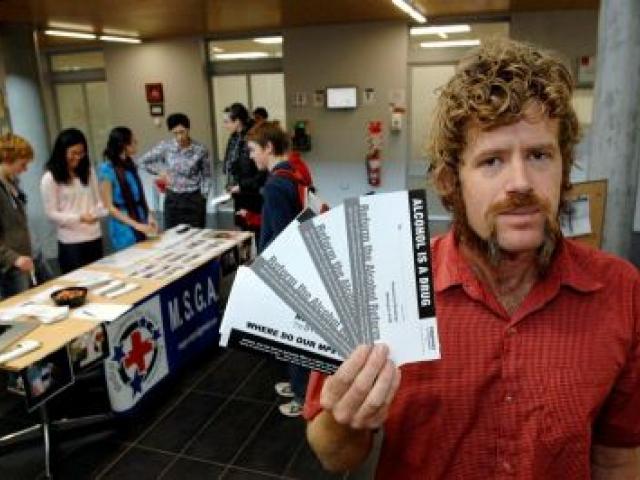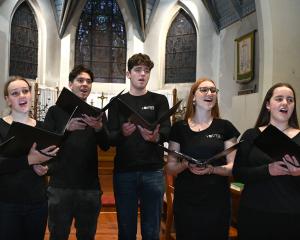
A group of University of Otago medical students is campaigning to reduce the "ridiculously high" death and illness toll resulting from New Zealand's binge drinking culture.
Members of the Medical Students for Global Awareness (MSGA) group manned a stall at the university's Hunter Centre, in Dunedin, at noon yesterday, campaigning for stronger measures to be taken in the Alcohol Law Reform Bill.
Students, university staff and members of the public were invited to sign postcards to their favourite politicians, encouraging them to endorse additions to the Bill that would ban broadcast alcohol advertising and sponsorship, and remove alcohol from supermarkets.
MSGA spokesman StefanFairweather, a third-year medical student, said New Zealand had a binge drinking culture.
Many people drank sensibly but New Zealand promoted an environment that fostered a "cool" image involving drinking.
"The price we pay for this is ridiculously high - 20 deaths a week related to alcohol, 200 arrests, emergency departments in hospitals overwhelmed on Thursday, Friday and Saturday nights with drinking related injuries," Mr Fairweather said.
Dunedin Hospital also faced similar problems, and the "appalling list of statistics" arising from alcohol abuse "just goes on and on".
In a New Zealand Medical Journal study, published this week, nearly a third of a group of university student drinkers reported they had passed out while drinking in the past six months, and many said vomiting did not stop them continuing a binge.
The Waikato University study canvassed about 500 students, mainly aged 18 or 19, from a "medium-sized university", which it did not name.
Mr Fairweather said some university students drank excessively, but binge drinking was a much wider social problem, which went well beyond universities.
The role of aggressive alcohol marketing and the promotion of "ultra-cheap alcohol" to students also warranted more scrutiny.
An encouraging aspect of the study was that 39% of men and women said they would stop drinking if friends told them to, he noted.
The Law Commission last year released a report, "Curbing the Harm", which made 153 recommendations to address the country's drinking problems.
The Government had picked up 113 of them in its Alcohol Law Reform Bill but this was not enough.
"They're just tinkering with the problem," he said.
The commission had recommended increasing the excise tax on alcohol.
Evidence showed this was one of the most effective measures a government could take to reduce heavy drinking, but the Government had "skated over" this issue.
In seven months, his Otago medical student class would be moving on to hospital wards.
Action was needed out in the community before such problems "ended up in the hospital", he said.












